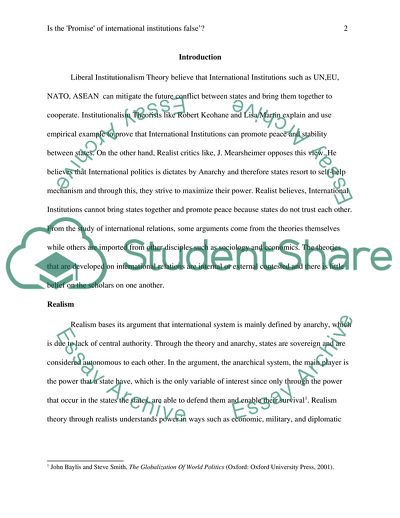Cite this document
(Is the 'Promise' of International Institutions False Coursework Example | Topics and Well Written Essays - 3000 words - 1, n.d.)
Is the 'Promise' of International Institutions False Coursework Example | Topics and Well Written Essays - 3000 words - 1. https://studentshare.org/social-science/1874420-is-the-promise-of-international-institutions-really-false
Is the 'Promise' of International Institutions False Coursework Example | Topics and Well Written Essays - 3000 words - 1. https://studentshare.org/social-science/1874420-is-the-promise-of-international-institutions-really-false
(Is the 'Promise' Of International Institutions False Coursework Example | Topics and Well Written Essays - 3000 Words - 1)
Is the 'Promise' Of International Institutions False Coursework Example | Topics and Well Written Essays - 3000 Words - 1. https://studentshare.org/social-science/1874420-is-the-promise-of-international-institutions-really-false.
Is the 'Promise' Of International Institutions False Coursework Example | Topics and Well Written Essays - 3000 Words - 1. https://studentshare.org/social-science/1874420-is-the-promise-of-international-institutions-really-false.
“Is the 'Promise' Of International Institutions False Coursework Example | Topics and Well Written Essays - 3000 Words - 1”. https://studentshare.org/social-science/1874420-is-the-promise-of-international-institutions-really-false.


